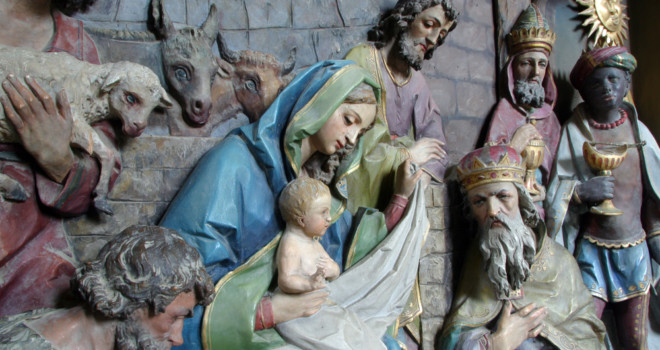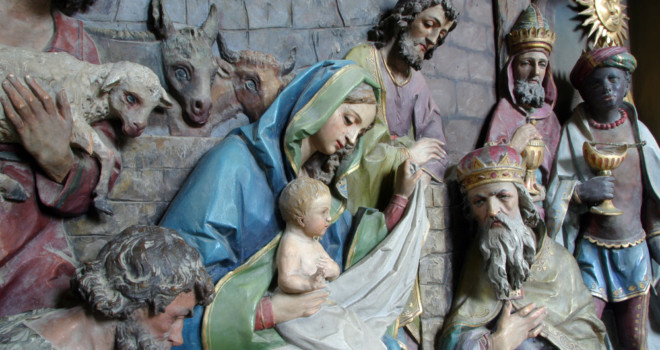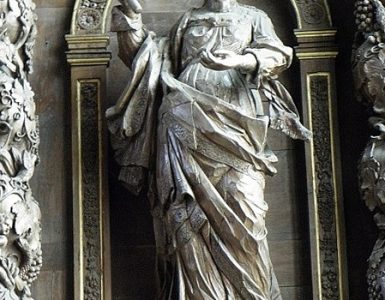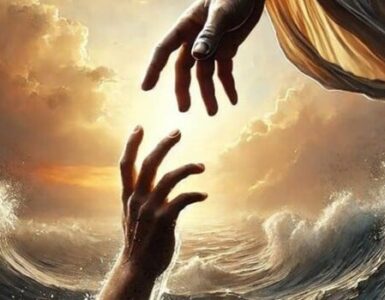During Lent, reflecting on the reasons why Jesus died is a fruitful exercise in devotion.
Likewise, during Advent and as we approach
Christmas, we ought to wonder why Christ was born.
The answer isn’t as obvious as you might first think. Two reasons probably leap to the mind for all of us: the cross and Christ’s desire to share in the fullness of our humanity.
No doubt, his birth led to his death and, likewise,
He participated in our humanity by virtue of being born.
But consider this: Adam was fully human without
having a human birth and died a true human death. Yet he was never ‘born.’
If Jesus, the second Adam, had been like the first one
He still would have been fully human. He would have thirsted, hungered, and
wept like us. He would have died a fully human death on the cross. The question
is, what did Jesus achieve by being born that would not have happened had He
been like the first Adam?
Here are twelve reasons why Christ chose to be born.
1. Confirm His humanity.
As stated above, because of Adam, Jesus could certainly have been fully human without a birth. But his birth has the added benefit of confirming the reality of His humanity. The fact that He was born is an indisputable sign of His authentic humanity.
2. Share in the fullness of the human experience.
By being born, Jesus shared in experiences that He otherwise would not have. He knew what it was like to be a child. And, what’s more, because of His divinity, He was fully conscious of the experience of being an unborn infant. As a result, He has a radically profound awareness of our experience of helplessness and utter dependence on another.
Moreover, it means that Christ can, in a special way, relate to unborn infants who never experience birth due to abortion. Christ came for them too.
3. Remind us that faith is a journey.
That faith is a journey might seem self-evident to all of us. As Catholics, we believe that salvation takes root in faith, which grows and develops through love. It is process, not a point in time. This is in contrast to many evangelical Protestants who claim that they have been ‘saved,’ as if it was a past one-time event. It is fitting Christ’s redemption mission was truly a journey from childhood to the cross because it mirrors the long way that all of us have to go.
4. Show us that humility is the way.
In The City of God, St. Augustine says humility is the way to heaven. Christ showed us the way by ‘humbling himself, even to the point of death on a cross’ (to paraphrase Philippians 2:8). The Incarnation prefigures the Passion. Indeed, as another writer on this site recently put it, “It was not so much that His birth cast a shadow on His life, and thus led to His death; it was rather that the Cross was there from the beginning, and it cast its shadow backward to His birth.”
5. Enter into the story of Israel.
By being born, Jesus became a member of a nation in a particular time and place. He became Jewish. That means that God entered Israel’s story from within, redeemed and elevated it, and invited all of us to share in it. Christ’s birth into the Jewish nation ensures that the Old Testament became part of the Christian Scriptures.
Yes, if we accept the hypothetical scenario posted above—that Jesus could have come fully grown as Adam—then we could argue that He also could have come as a Jewish man. But His birth makes Him a part of the Jewish story in a way He otherwise would not have been. It means He is a part of a genealogy. And it makes the Old Testament an indispensable part of the fabric of Christian faith.
6. Enter into the human story.
Likewise, being born ensured that Christ, entered the human story from within. He was, so to speak, truly an insider. Had Christ simply descended in human form from heaven, or been formed from the dust, He would still have been fully human, but He would not have shared in the human story in the same way.
7. Rebuild humanity from the ground up.
Christ came to give the human race a new beginning, to restore us to our original greatness. The fact that He was born shows that this restoration will be a complete renovation. Christ went back to square one so to speak, to the earliest possibly starting point, the fertilized egg.
8. Remind us that we need to be born again.
The Church teaches that baptism is necessary for salvation. To be baptized is to be ‘born again.’ Once again, Christ, showed us the way by being born Himself.
9. Give us Himself.
Yes, He gave Himself to us on the cross. But Christ also gave Himself to us in another way in His birth. It offers us another way to encounter Christ. In his work, On the Incarnation of the Word, St. Athanasius says the variety of experiences Christ underwent ensures He has many ways of reaching out to man:
For this cause He was both born and appeared as Man, and died, and rose again, dulling and casting into the shade the works of all former men by His own, that in whatever direction the bias of men might be, from thence He might recall them, and teach them of His own true Father.
As St. Paul says in 1 Corinthians 9:22, he has become ‘all things to all.’ How much more Christ!
10. Give us His mother.
The fact of His birth means that Christ has also given us His mother. We owe our ‘holy Queen, Mother of mercy … our life, our sweetness, and our hope’ to the fact that Christ was born. No birth, no Mary. And let us not fall into the Protestant trap of thinking of Mary as some sort of surrogate birth mother—present merely to give birth and nothing else. As the gospels make clear, she was His true mother, continuing to care for Him as a child and accompany Him in His ministry.
11. Give us the Holy Spirit.
As Luke 1 makes clear, Jesus was conceived through the Holy Spirit. The implications of this are incredible: it means that humanity cooperated with God in an extraordinarily profound way. Mary gives us hope that all of us can cooperate with the stirrings of the Holy Spirit.
12. Point to the Father.
The fact that Jesus was born reflects His eternal begetting by the Father. This is why it is so fitting that the Second Person of the Trinity be the one to assume humanity. Church Father St. John Damascene affirmed this truth in The Orthodox Faith:
We reverence His two generations, one from the Father before time and beyond cause and reason and time and nature, and one in the end for our sake, and like to us and above us; for our sake because it was for our salvation, like to us in that He was man born of woman at full time, and above us because it was not by seed, but by the Holy Spirit and the Holy Virgin Mary, transcending the laws of parturition.
In the Summa Theologica, St. Thomas Aquinas makes a similar point:
[I]n Christ there is a twofold nature: one which He received of the Father from eternity, the other which He received from His Mother in time. Therefore we must needs attribute to Christ a twofold nativity: one by which He was born of the Father from all eternity; one by which He was born of His Mother in time.
Conclusion
It is clear, then, that in being born, Christ gave us so much: a fresh start, a new hope, a mother, Himself, and an invitation to participate in the Triune life of God. Luke 1 tells us that in the conception of Jesus, the ‘power of the Most High’ overshadowed Mary. The wonder of the Incarnation is something veiled to us; the critical moment occurs within the shadows. Truly, such a great work is beyond our ability to see directly. But its light continues to illumine our lives today.
✠












